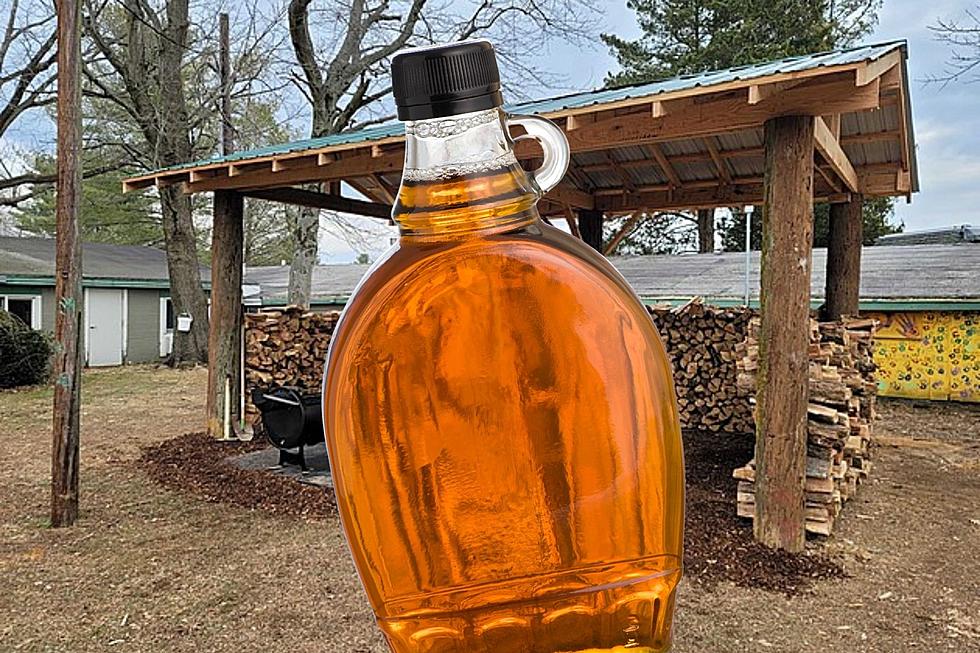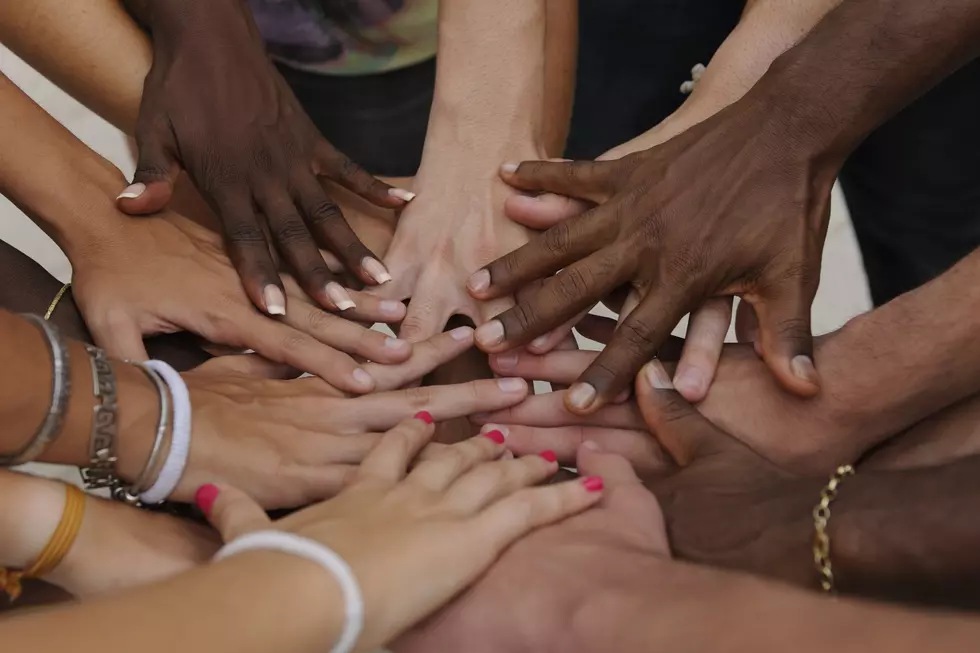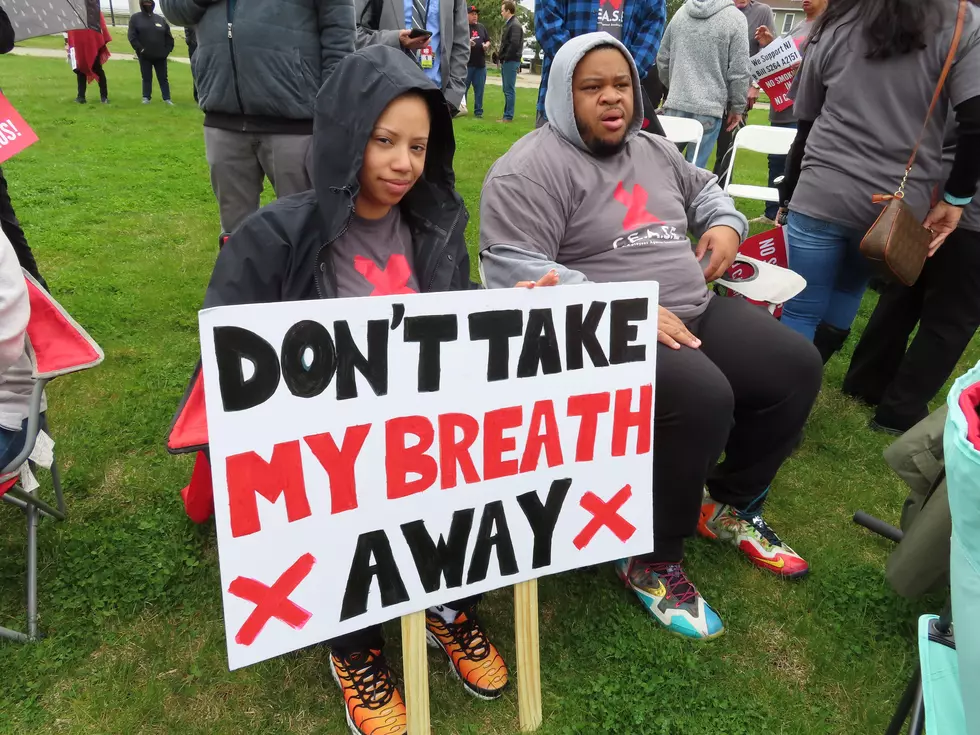
Maple syrup production ramps up in the Pine Barrens of NJ
GALLOWAY — It's a known fact that in the heart of the Pine Barrens in New Jersey lies the main campus of Stockton University.
But here's another fact that people may not know: South Jersey maple syrup is made on that campus.
Judith Vogel, director of outreach at Stockton University is also the coordinator of The Stockton Maple Project.
Some faculty members were awarded a grant from the U.S Department of Agriculture to study the viability of maple syrup production in South Jersey. There are three legs to the original grant, she said.
Production
The production is to see whether the university could create a working sugar bush on the main campus.
Research
Students and faculty are doing soil studies about how soil impacts syrup and how the sapping process impacts the soil.
Outreach
Vogel said they are trying to get into schools and into communities and educate people about the sustainable resource and the agroforestry model.
She said the Stockton Maple Project has been so successful. The university is situated in the center of the Pine Barrens. As part of their acreage, there are cedar swamps and red maple groves. In the first year, students and faculty tapped 90 trees on the campus and this year, 400 trees were tapped.
They are producing actual South Jersey maple syrup, which is amazing, Vogel said. This project has translated into a community outreach effort. Families and businesses have come to campus to see how the maple syrup project is conducted.
"They've brought it back to their communities and they're producing maple syrup in backyards, in some homeschooling clubs. We're in schools in the immediate area, tapping trees and producing New Jersey maple syrup," she said.
The project has now expanded to seven more hubs in New Jersey and Philadelphia. The hubs are: Maples in the Pines, in Lower Bank, Burlington County, just outside Egg Harbor City, Appel Farms in Elmer, Salem County; Marshallville Farms in Tuckahoe, and Deeply Rooted farms in Cape May Court House, both Cape May County; Pinelands Preservation Alliance in Southampton, Burlington County, Jefferson Farms, Mantua Township, Gloucester County and Oak Lane Maple, in Philadelphia.
Vogel said the goal is to create a community model so communities can have a central location for doing the hard part of maple syrup production which is "the boil." The sap looks and tastes like water, she explained. To make syrup, the sap must be boiled down. It's not a hard process but it's long and requires special equipment.
Stockton is providing organizations and families within the region with some of the startup funds to purchase an evaporator. That evaporator will boil down sap into syrup and it's going to do it in mass, she said.
Within these hubs, Vogel said the goal is to create a model where they reach out to people in their communities, get them involved in maple syrup collection, bring it to the hub to process it into syrup, and then divvy it back up to everyone who brought some of the sap.
Vogel said Stockton has always been a very family-oriented school so this model works well here. It is interested in engaging the community and educating them about maple syrup production.
"The big picture is letting them see the value of some of these protected lands in South Jersey," Vogel said.
Students and faculty from all majors are involved in the project. She said less than a dozen are actively working on the grant at any given time, but Stockton biologists have used this opportunity as a lifelong learning technique of teaching students how to find research opportunities outside their major. There are also education majors who are writing the curriculum as part of their internship. So there's a mix of everyone involved in the maple syrup project.
The bummer part of the project is that the maple syrup is not for sale and there are no immediate plans to sell the syrup. Vogel said since they are federally funded, they cannot make a profit on the syrup.
Instead, some of the syrup is given to donors at Stockton as a "thank you" for their donations. In the future, the school is looking to partner with some restaurants and some other organizations who might use these grants to develop recipes using the syrup too, Vogel said.
This project is about lifelong learning. "It started out of curiosity, whether or not this was something that we could do and sustain in South Jersey. We're finding that not only is it doable and sustainable, it's also something the community is really latching onto and we're creating a culture that's recognizing this as something valuable," Vogel said.
Jen Ursillo is a reporter and anchor for New Jersey 101.5. You can reach her at jennifer.ursillo@townsquaremedia.com
Click here to contact an editor about feedback or a correction for this story.
2022 Seaside Heights Polar Bear Plunge photos
More From Beach Radio









